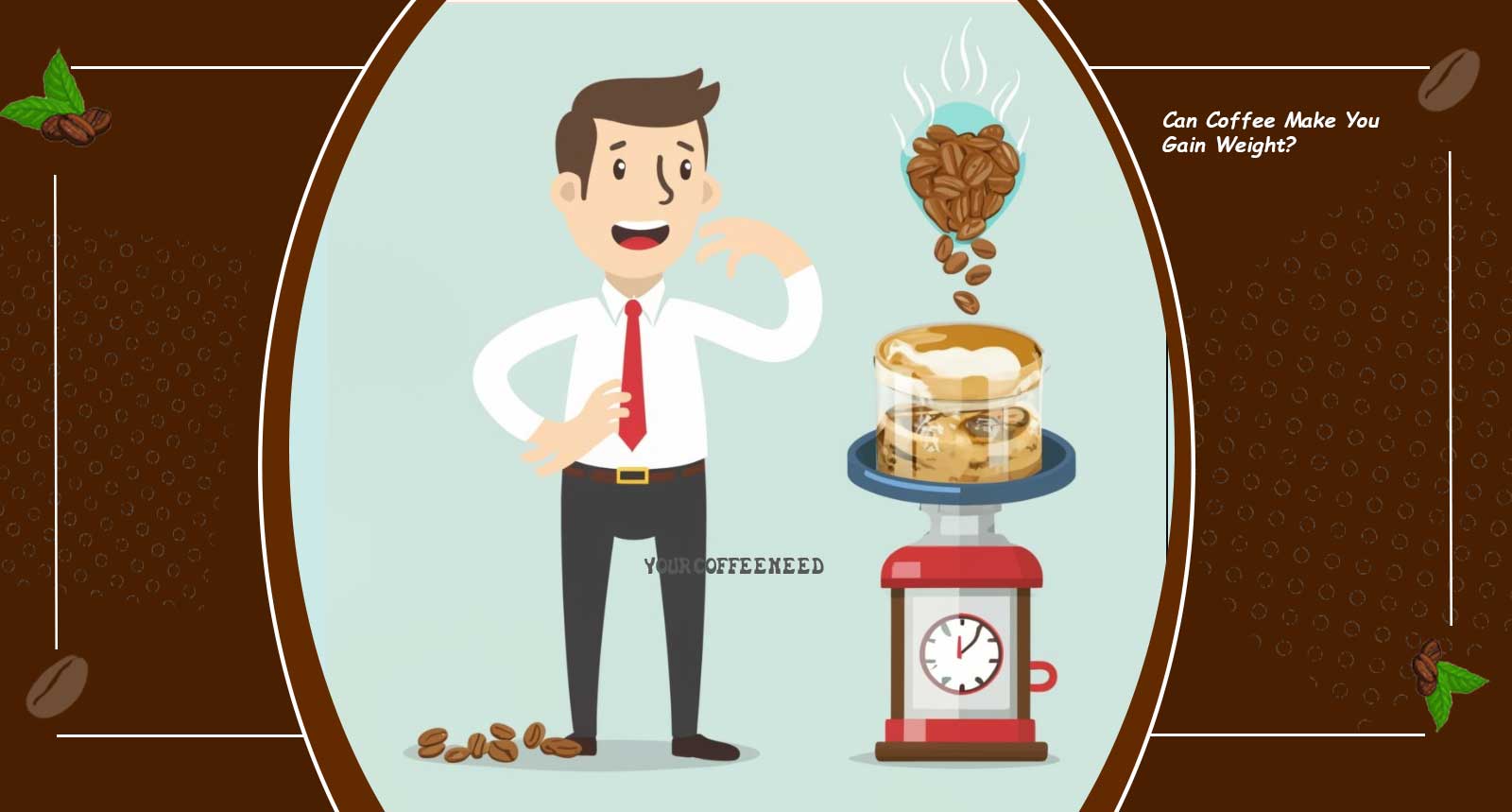Coffee, a beloved morning ritual for many, often sparks debates about its impact on weight.
Can coffee make you gain weight? Understanding the relationship between coffee consumption and potential weight gain is crucial in making informed choices about your daily brew.
Let’s delve into the science behind this popular beverage and uncover the truth.
When should I drink coffee to lose weight?
Discovering the ideal moments to savor your coffee can play a significant role in supporting your weight loss goals.
Let’s explore the science-backed insights on the best times to indulge in this aromatic beverage to maximize its potential benefits for shedding those extra pounds.
Unlocking the full potential of coffee for weight loss involves strategic timing. Here’s a breakdown of the optimal moments to savor your coffee, ensuring it becomes a supportive ally in your journey to shed those extra pounds.
Morning Kickstart
Embrace the power of caffeine in the morning to kickstart your metabolism and enhance fat-burning throughout the day. A well-timed cup of coffee can provide the energy boost needed for effective workouts.
Pre-Exercise Fuel
Consider enjoying a cup of coffee before your workout session. The caffeine can enhance physical performance by increasing adrenaline levels, helping you burn more calories during exercise.
Avoid Evening Sips
Be mindful of consuming coffee in the late afternoon or evening. The stimulating effects of caffeine may interfere with your sleep, impacting your body’s natural fat-burning processes.
By aligning your coffee consumption with these strategic moments, you can harness its potential to support your weight loss endeavors.
Can Coffee Aid Weight Loss?
Determining the best moments to enjoy your coffee can impact its role in your weight loss journey. Let’s investigate the scientifically-backed insights into the most advantageous times to indulge in this aromatic brew to harness its potential benefits in shedding those extra pounds.
While some evidence suggests that coffee’s caffeine content can temporarily boost metabolism and act as an appetite suppressant, its direct contribution to weight loss remains a subject of ongoing research and debate. These potential effects might vary among individuals and may not necessarily lead to significant or sustained weight loss on their own.
Considerations for Weight Management
Successful weight management involves a holistic approach, encompassing dietary choices, physical activity, and overall lifestyle. While coffee might offer subtle metabolic and appetite-related benefits, its role in weight loss or gain is just one piece of the puzzle. A balanced diet, regular exercise, and mindful consumption of coffee—without excessive added sugars or creams—can contribute to overall well-being and potentially support weight management goals.
Can Caffeine Cause Belly Fat?
The notion that caffeine leads to the accumulation of belly fat has circulated among health enthusiasts. However, let’s explore the scientific facts behind this claim to gain a clearer understanding of caffeine’s actual influence on the notorious belly fat.
Dispelling the belief that caffeine induces the accumulation of belly fat requires a closer examination of the scientific evidence. Let’s delve into the relationship between caffeine intake and its potential effects on the stubborn area of “belly fat.”
Metabolic Influence
Research suggests that caffeine can modestly increase metabolism, potentially aiding in fat burning. However, this effect seems to vary among individuals and might not specifically target belly fat.
Overall Lifestyle Factors
Rather than caffeine alone, lifestyle choices, such as diet and exercise, play a more significant role in the distribution of body fat, including the abdomen. Caffeine’s impact on weight is often intertwined with these broader lifestyle factors.
Insulin Sensitivity
Some studies indicate that caffeine might influence insulin sensitivity, potentially affecting fat storage patterns. However, conclusive evidence directly linking caffeine to belly fat remains limited and inconclusive.
In essence, while caffeine may have some metabolic effects, attributing belly fat solely to caffeine intake overlooks the complex interplay of various lifestyle factors. Understanding this can help make informed decisions about your coffee consumption in relation to body fat distribution.
Can Coffee Make You Gain Weight?
Exploring the potential impact of coffee on your overall weight is a multifaceted endeavor. Let’s navigate through the intricate relationship between coffee consumption and its potential effects on body weight.
Unraveling the intricate connection between coffee consumption and its potential influence on body weight is crucial. Let’s delve into the various factors that contribute to understanding whether coffee truly impacts your overall weight.
Metabolism and Energy Expenditure
Coffee, known for its caffeine content, can temporarily boost metabolism and increase calorie expenditure. However, these effects may vary among individuals and might not significantly alter long-term weight changes.
Appetite and Caloric Intake
Caffeine can act as an appetite suppressant for some individuals, potentially reducing overall caloric intake. However, any weight changes attributed to coffee may depend on how it affects individual appetite patterns and dietary choices.
Hydration and Fluid Balance
The diuretic effect of caffeine can lead to increased urination, potentially impacting short-term water weight fluctuations. Yet, this doesn’t necessarily equate to long-term changes in body fat or overall weight.
In essence, while coffee consumption might influence certain aspects related to weight, its direct impact on substantial, long-term weight changes remains a complex subject influenced by multiple factors beyond caffeine intake alone. Understanding these nuances is vital in assessing coffee’s role in your weight management journey.
Does Black Coffee Lead to Weight Gain?
Navigating the nuances of whether black coffee might play a role in weight gain is crucial for those mindful of their dietary choices. Let’s dissect the various aspects associated with black coffee consumption and its potential impact on body weight.
Calorie Content
Black coffee itself contains minimal calories, virtually none if consumed without additives like sugar or cream. As such, it’s unlikely to directly cause weight gain due to its low-calorie nature.
Caffeine’s Effects
Caffeine, found in black coffee, can transiently boost metabolism and increase calorie burning. While this effect may aid weight management for some, it’s not inherently linked to weight gain.
Appetite Regulation
For some individuals, black coffee may act as an appetite suppressant, potentially reducing overall calorie intake. However, the impact on appetite can vary widely among individuals.
In essence, black coffee, devoid of added sugars or creams, is unlikely to be a direct cause of weight gain. Rather, its potential impact on weight is influenced by various factors, including individual metabolism, dietary habits, and overall lifestyle choices.
Is Coffee Beneficial for Oily Skin?
Understanding the potential impact of coffee on oily skin involves uncovering whether this beloved beverage holds any benefits for managing skin conditions characterized by excess oil production. Let’s delve into the relationship between coffee and oily skin to discern its effects.
Can coffee be advantageous for oily skin?
Unraveling the relationship between coffee and its impact on oily skin requires a closer examination of its potential benefits and effects on skin prone to excess oil production.
Antioxidant Properties
Coffee is rich in antioxidants, such as chlorogenic acid, which possess anti-inflammatory properties. These antioxidants might aid in reducing skin inflammation associated with excess oiliness.
Exfoliating Qualities
The texture of ground coffee can serve as a natural exfoliant, helping to slough off dead skin cells and unclog pores. This exfoliating action may assist in managing oil buildup and preventing acne breakouts.
Oil Control
Caffeine, found in coffee, has astringent properties that can temporarily tighten skin and reduce the appearance of pores, potentially contributing to a less oily complexion.
While coffee presents potential benefits for oily skin, individual skin reactions can vary. Patch tests and monitoring skin responses are advisable to gauge the suitability of coffee-based skincare routines for managing oily skin effectively.
Conclusion
Coffee’s influence on weight gain is nuanced. Evidence suggests that moderate consumption of black coffee without additives is unlikely to directly cause weight gain. Factors like metabolism, appetite, and individual reactions matter. Moderation and mindful consumption play vital roles in understanding coffee’s effects on weight.

